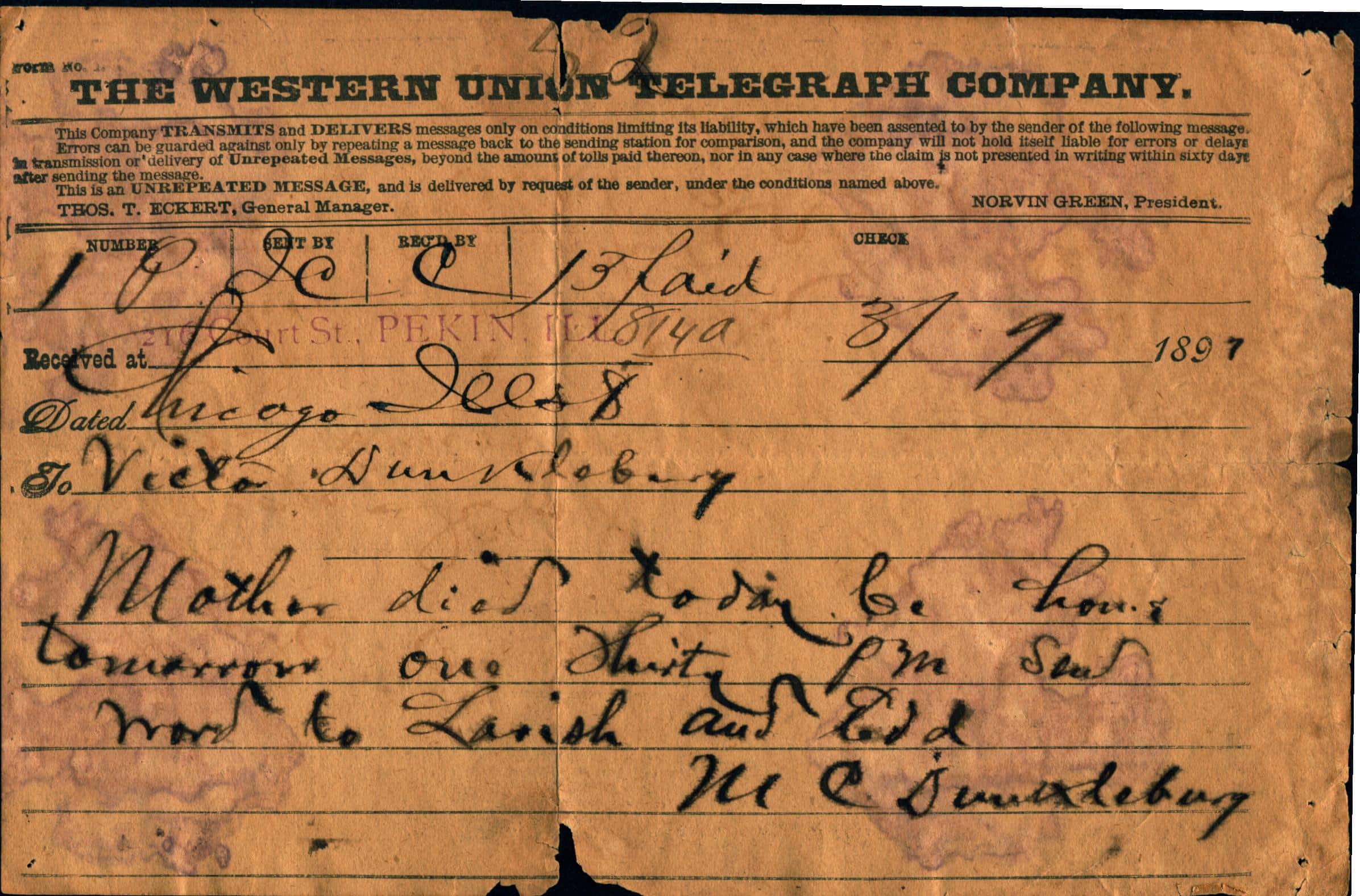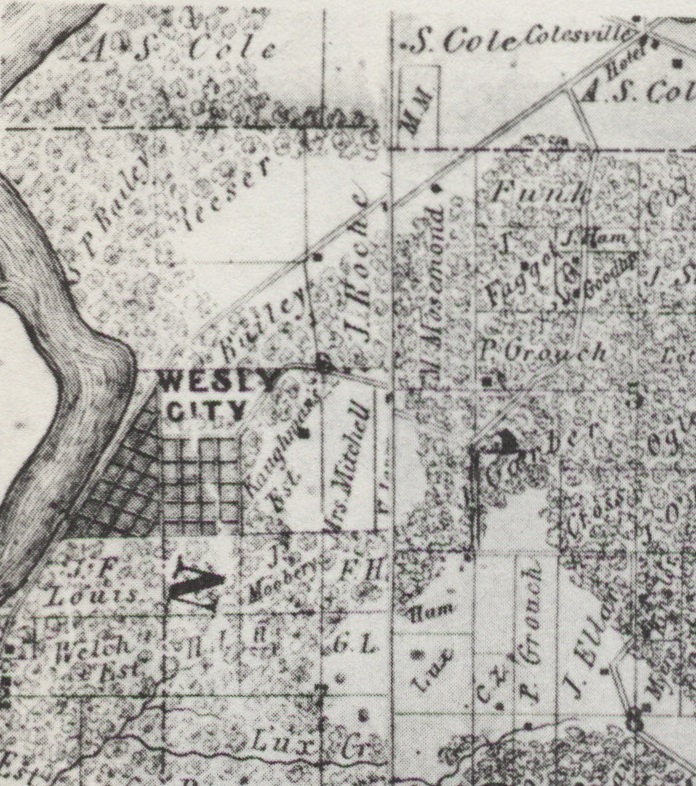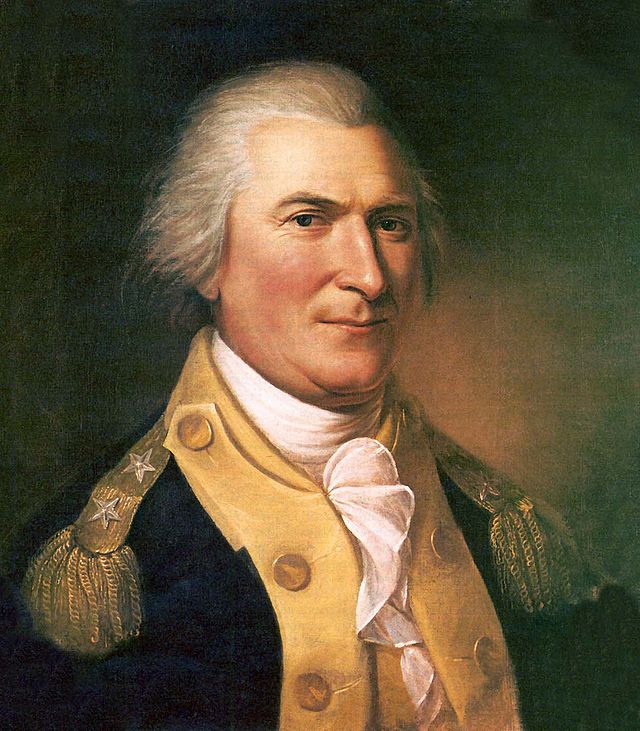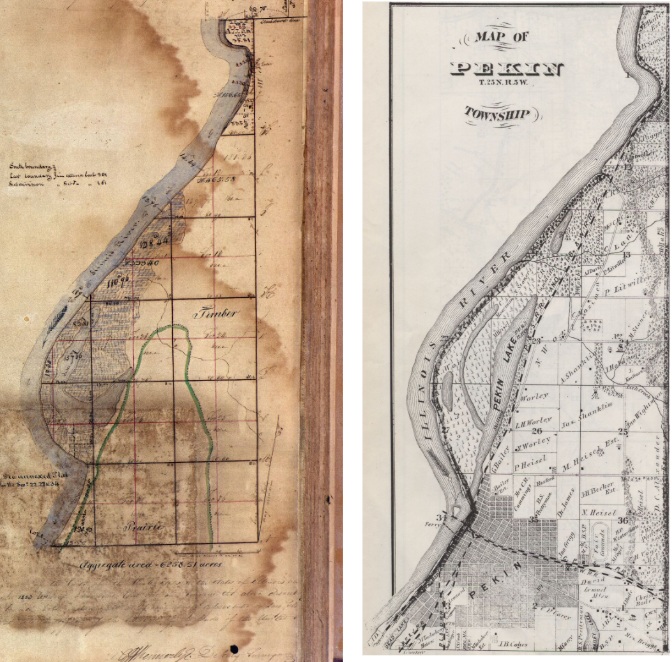This week we again examine some items that recently were donated to the Pekin Public Library’s Local History Room collection. Last month the library received a donation of an assortment of mementos that provide some glimpses into the life of a Pekin family just a few generations ago.
The mementos pertain to the family of Victor P. Dunkelberg (1869-1960), a Pekin businessman and former city alderman who has a brief biographical sketch in Ben C. Allensworth’s 1905 “History of Tazewell County.” The donated items include a 1931-32 Jefferson School Parent-Teacher Association membership card stub for Victor’s wife Martha Spoonhoff Dunkelberg (1871-1946), an American Legion Auxiliary membership card for Martha dated Oct. 15, 1932, and a grade school report card for Victor and Martha’s son Louis P. Dunkelberg (1896-1976).
The most interesting of the donated items, however, are five telegrams – the first sent to Victor Dunkelberg in March of 1892 and the other four sent to him in July of 1897. The first tells of the news of the passing of Victor’s mother Louise Prescott Dunkelberg (1845-1892), while the other telegrams deal with the sickness and death of Victor’s father Moses C. Dunkelberg (1838-1897), along with arrangements for his funeral and for the settling of his estate. Moses apparently had died in California.
The first telegram was sent from Chicago by Western Union, and was received at 216 Court St., Pekin. A handwritten text, it is dated “3 / 7 1892,” which apparently means March 7, 1892 (although the number 2 in “1892” is incomplete and looks like a 7). The brief telegram text says, “Mother died today. Be home tomorrow one thirty pm. Sent word to Larish and Edd,” and is signed, “M. C. Dunkleburg.” That is Victor’s father Moses C. Dunkelberg, but it’s unknown who “Larish” and “Edd” were.
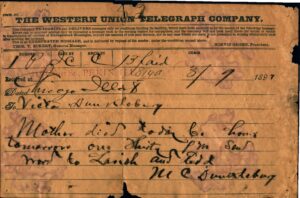
The four remaining telegrams were sent from Los Angeles, Calif., by the Postal Telegraph-Cable Company. They all came from a certain “I. R. Dunkelberger,” and he addressed them to “Victor Dunkelberger, Pekin, Ill.” The “-er” suffix on the surname apparently was a variant form of this family’s name. I. R. Dunkelberger obviously was related to Victor and Moses, but the exact nature of their kinship is unknown. The published obituaries of Victor and Martha Dunkelberg in the Pekin Daily Times do not mention anyone of that name among their next of kin. It could have been a brother of Moses Dunkelberg.
The first of these four telegrams, dated July 12, 1897, says, “Condition same will write today Letter and draft reach you about tomorrow Your Father don’t know we wired.” Two days later came a telegram saying, “Your Father greatly improved, Wire at his request Will write.” But three days later, Moses passed away, and the next day, July 18, I. R. Dunkelberger wired, “Will send Body Tuesday W F Co or come myself.” The last telegram, sent later the same afternoon, says, “Start Tuesday with remains. Letters Administration necessary immediately here protect property, No Executor named in Will. You and Ruby sole beneficiaries, If desired wire me immediately Jointly requesting my appointment Administrator.”
Victor’s parents are both buried in Lakeside Cemetery in Pekin. Curiously, although the telegram says his mother Louise had died on March 7, her gravestone shows her date of death as March 8. Victor and his wife Martha are also buried in Lakeside Cemetery, as are their sons Ferdinand C. Dunkelberg and Louis P. Dunkelberg. The younger son, Louis, was a long-time Pekin attorney with a law office on the second floor of the old Pekin Times Building at the corner of Fourth and Elizabeth streets. Louis P. Dunkelberg served as Tazewell County State’s Attorney in the early 1930s, and his most prominent case was the failed prosecution of three Tazewell County Sheriff’s deputies for the beating death of Tazewell County jail inmate Martin Virant in 1932.


